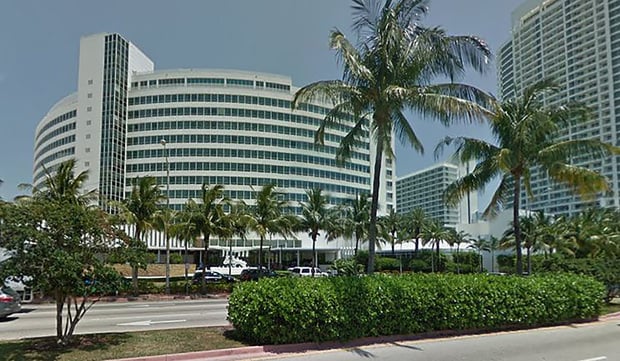(This story, in slightly different form, originally appeared in Incisive Media's Daily Business Review.)
MIAMI-Automated Petroleum & Energy, one of the Southeast's largest gasoline distributors, is looking to sell 78 gas station and convenience properties in 46 Florida cities through a private auction. The Brandon-based company, which owns 247 stations and expects to distribute 360 million gallons of gas this year, will take sealed bids for the sites until July 28.
The Energy Exchange of Chicago and PetroProperties & Finance of Coral Gables are coordinating the auction. Bidders are required to sign a 20-year fuel supply agreement or declare alternate uses for the sites.
Automated Petroleum is marketing the sites as "convenience stores with gas" to highlight the most profitable component of station operation. The goal of the auction is to reinvest the capital raised through the auction into new locations, company president Bill McKnight said. Another objective is to realign its holdings.
"We have a number of sites throughout Florida," McKnight said. "Of those sites, 271 are commission deals, and another 80 sites have the [convenience store] operator controlling the lease, and we just supply the gas. We want a 50-50 ratio."
For stations that operate on a commission basis, Automated Petroleum would pay the operator a commission from the gas sales. That would be in addition to revenue from any convenience store sales.
Automated Petroleum has been actively buying station sites recently. The company acquired 30 properties from BP and took over 18 of its leases. Many of the stations are in Broward and Palm Beach counties, McKnight said.
BP, the third-largest global energy company, has been selling off stations to raise capital. Several major oil companies have decided to get out of the retail side of the gas business, McKnight said. Automated Petroleum plans to use some capital from the auction to purchase stations from those oil companies in 2010.
Gas station owners are turning to private auctions to move more properties. Earlier this year, Hallandale Beach-based Capital Commercial Real Estate Group sold a pair of Miami stations through a sealed-bid auction.
While McKnight is a "good operator," using a private auction to sell the Automated Petroleum portfolio is a questionable strategy because it substantially reduces the field of potential buyers, said petroleum industry specialist Adam Kristol of Marcus & Millichap's Fort Lauderdale office. The best sites will be "cherry picked" by bidders, leaving the bulk of less-desirable stations unsold.
"An auction misses a huge chunk of the buyer pool," Kristol said. "Once the sites are picked [by bidders], the seller has no obligation to close. The best sites are sold, the rest don't sell, and you decide from there what to do."
Automated Petroleum is not the only company marketing a large group of stations. Davie-based General Energy has put a 67-station portfolio—including 15 stations in Florida—on the market.
Margate-based MAQ Group, led by principal Mahammad Qureshi, is marketing about 40 station and convenience store properties. About one-third of General Energy's portfolio is under contract, said Kristol, who is marketing both the General Energy and MAQ Group portfolios.
Only about one-third of the MAQ portfolio is "in play" because of pricing, he said. Convenience store companies such as 7-Eleven and Circle K are expressing the most interest in the available properties, Kristol said.
Owning gas station properties is becoming more expensive because of a looming Dec. 31 state deadline to upgrade underground tanks. In 1998, the Florida Department of Environmental Protection ordered station owners to replace single-wall tanks with double-wall versions by 2010 or find an alternative secondary containment system to prevent fuel leaks from seeping into the ground. The law also requires continual underground monitoring.
Replacing tanks can cost anywhere from $200,000 to $400,000 per station, Kristol said. One in eight gas station owners in Florida will find compliance costs to be too extreme and stop selling gas, he predicted.
Automated Petroleum has spent $28 million replacing outdated tanks over the past five years, McKnight said. About two-thirds of the sites in the auction have been remediated in advance of the state deadline, while the rest have work left to do.
"We will help the operators to stay in compliance" with state regulations, he says. "A few of the sites might be sold for other uses, such as fast-food restaurants or drug stores."
Want to continue reading?
Become a Free ALM Digital Reader.
Once you are an ALM Digital Member, you’ll receive:
- Breaking commercial real estate news and analysis, on-site and via our newsletters and custom alerts
- Educational webcasts, white papers, and ebooks from industry thought leaders
- Critical coverage of the property casualty insurance and financial advisory markets on our other ALM sites, PropertyCasualty360 and ThinkAdvisor
Already have an account? Sign In Now
*May exclude premium content© 2024 ALM Global, LLC, All Rights Reserved. Request academic re-use from www.copyright.com. All other uses, submit a request to [email protected]. For more information visit Asset & Logo Licensing.








